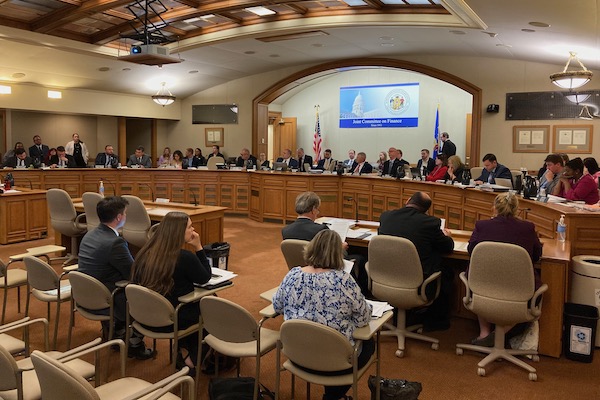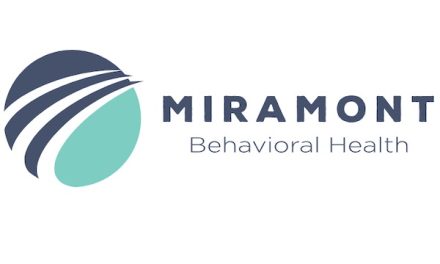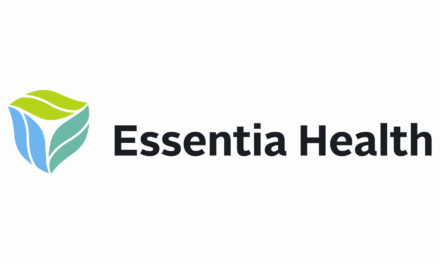
JFC advances Medicaid rate increases, plan to fight opioid crisis

Editor’s note: This story has been updated to reflected that the motion would provide $5 million for allied health professionals’ training over the 2023-25 biennium, rather than $2.5 million.
The Republican-controlled Joint Finance Committee on Friday advanced a $3.1 billion health plan in all funds, including $837.8 million in state money, that would in part boost Medicaid rates during the 2023-25 biennium.
The budget-writing committee voted 11-4 along party lines a few minutes before 1 a.m. to include the plan in the state’s next budget, which GOP lawmakers are still crafting and is subject to approval by the Assembly, Senate and Gov. Tony Evers.
“There’s a lot of wonderful things we’ve done in this motion,” said committee Co-Chair Sen. Howard Marklein, R-Spring Green.
“There’s some things that we have talked about for months, with our partners in healthcare and long-term care, and why those things are important,” committee Co-Chair Rep. Mark Born, R-Beaver Dam, said. “That’s why they’re in this motion.”
But Rep. Evan Goyke, D-Milwaukee, said that the plan didn’t provide enough support.
“This majority party motion does not provide the investments in our healthcare workforce that providers around the state of Wisconsin and their patients need,” he said.
The motion includes 54 items, including $354.2 million in state dollars to meet Medicaid’s cost-to-continue estimate. It would continue a 5 percent rate increase funded by COVID-19 relief dollars for Medicaid home and community-based services through the end of the biennium, a move that would cost $88.7 million in general purpose revenue.
The plan would provide $52.2 million in state dollars over the biennium to boost Medicaid primary care provider reimbursement rates. It would provide $48.2 million in state dollars to boost payments to hospitals that serve a disproportionate number of Medicaid patients, $26.6 million to raise rates for hospital services and $12 million to increase payments for hospital behavioral health units.
GOP lawmakers also opted to provide $56.9 million in general purpose revenue for nursing home support services — like housekeeping, maintenance and dietary staff — and direct the Department of Health Services to set a nursing home payment standard for the services similar to the one it has for direct care services.
They want to put $15 million in state dollars toward increasing the direct care and services portion of capitation rates DHS provides to managed care organizations to fund long-term care services in Family Care. And they want to use $15 million in state dollars to increase personal care reimbursement rates.
Other provisions in the plan would raise Medicaid rates for emergency doctors and chiropractors as well as boost funding for medical residency program grants.
The plan would bar Medicaid from covering gender-affirming care, to the extent permitted under federal law. The provision drew a rebuke from Sen. Kelda Roys, D-Madison, who questioned why GOP lawmakers want to “hurt” transgender children and why they were treating them as “political punching bags.”
The GOP motion would provide $5 million for allied health professionals’ training, $2 million for a telemedicine crisis response pilot program and $1.5 million more in grants for free and charitable clinics.
Republicans also opted to provide $10 million for grants to support regional behavioral health crisis facilities, $5 million to establish a general dentistry residency program at Marquette University School of Dentistry and $5 million for a complex patient pilot program.
Marklein said that details for the pilot program, which would help hospitals transfer complex patients to post-acute facilities, would be determined through future legislation. However, Sen. LaTonya Johnson, D-Milwaukee, questioned why the plan reduces the $15 million that Evers proposed for the program.
Republicans rejected a Democratic amendment to the motion that would provide $13.4 million in state dollars to extend Medicaid postpartum coverage to a year.
“This just makes good common sense,” Johnson said. “It’s a simple bill that could help save a life.”
No Republican lawmakers spoke against the amendment, but Assembly Speaker Robin Vos, R-Rochester, said this week he opposes the extension in part because new mothers who make more than the poverty level can find private coverage, including with help from Affordable Care Act subsidies.
Before acting on the budget, the committee amended a plan by state health officials to spend $8 million from opioid settlements with drugmaker Johnson & Johnson and drug distributors Cardinal Health, McKesson Corp. and AmerisourceBergen.
In March, DHS proposed using the money to support capital projects, school programming and access to anti-overdose drugs and fentanyl test strips. However, an objection raised during the committee’s review process put the brakes on the proposal.
The committee voted 11-4 along party lines to spend:
- $2.9 million for distributing the anti-overdose drug Narcan and fentanyl test strips.
- $2.5 million for grants to counties and tribes for room and board costs of Medicaid members receiving residential substance use disorder treatment.
- $2 million for supporting medication for addiction treatment.
- $300,000 to pay a vendor for collecting and maintaining information regarding treatment providers for the state’s substance use disorder treatment platform.
- $300,000 for the Surgical Collaborative of Wisconsin to train surgeons on preventing prescription opioid abuse.
This article first appeared in the Wisconsin Health News daily email newsletter. Sign up for your free trial here.





